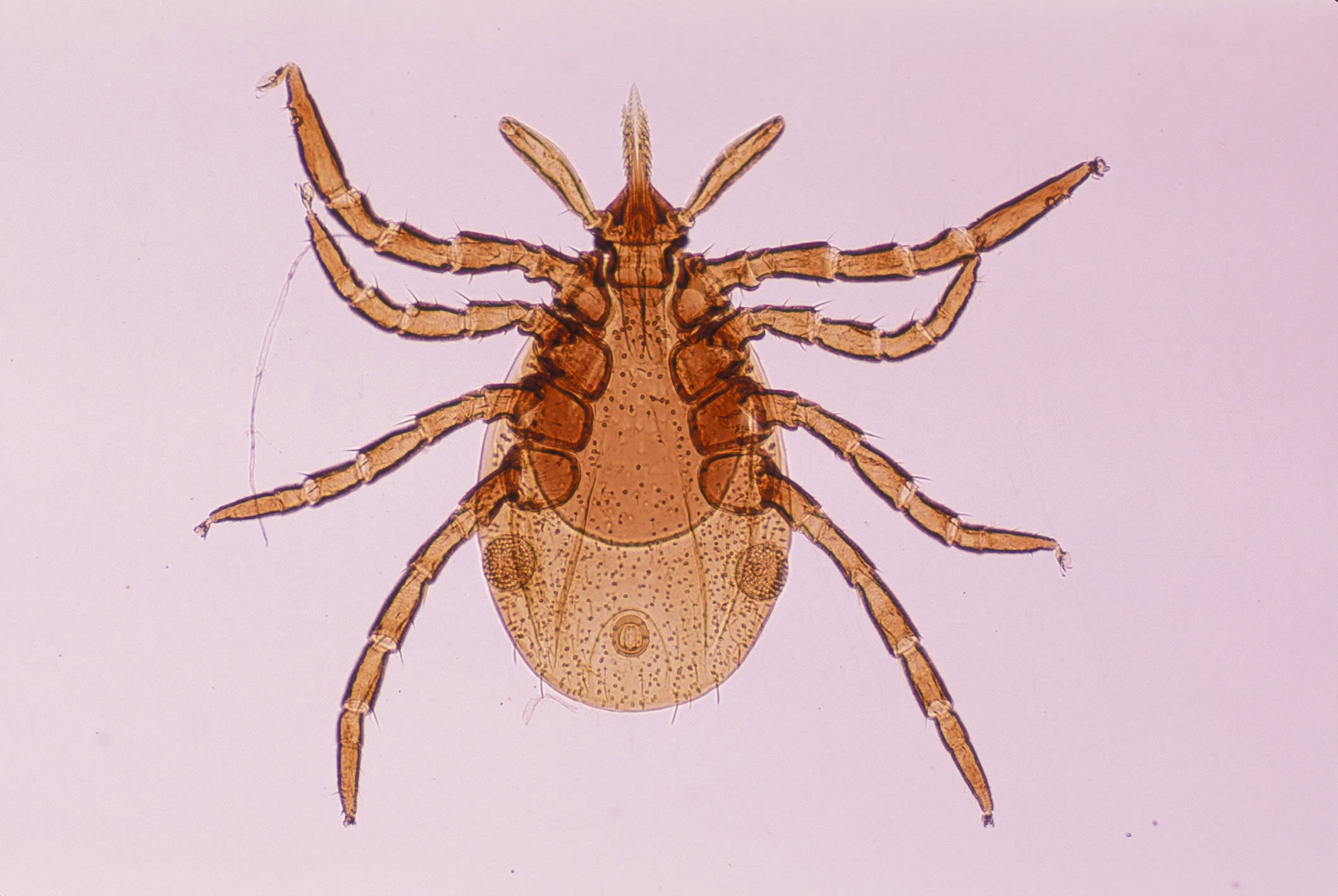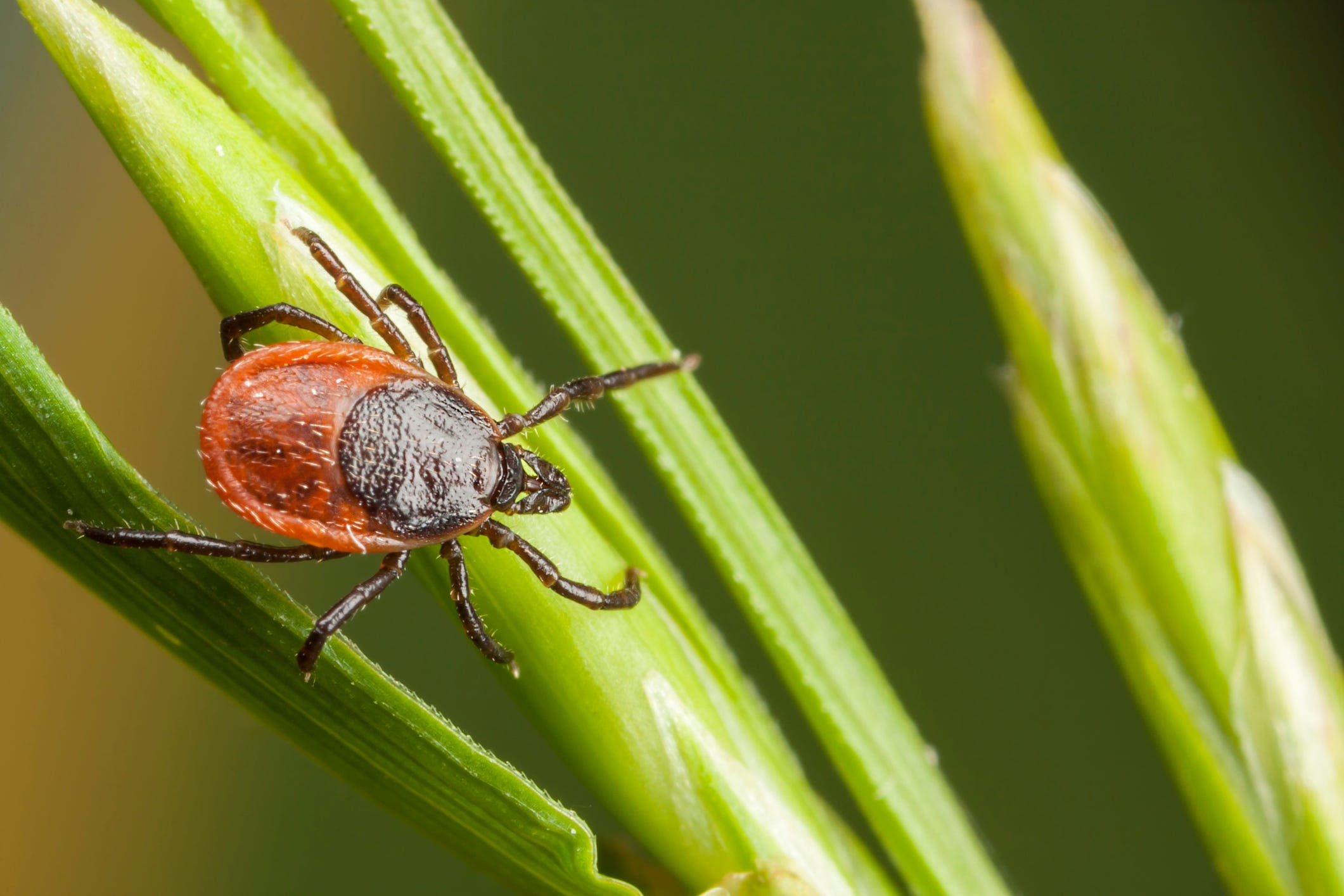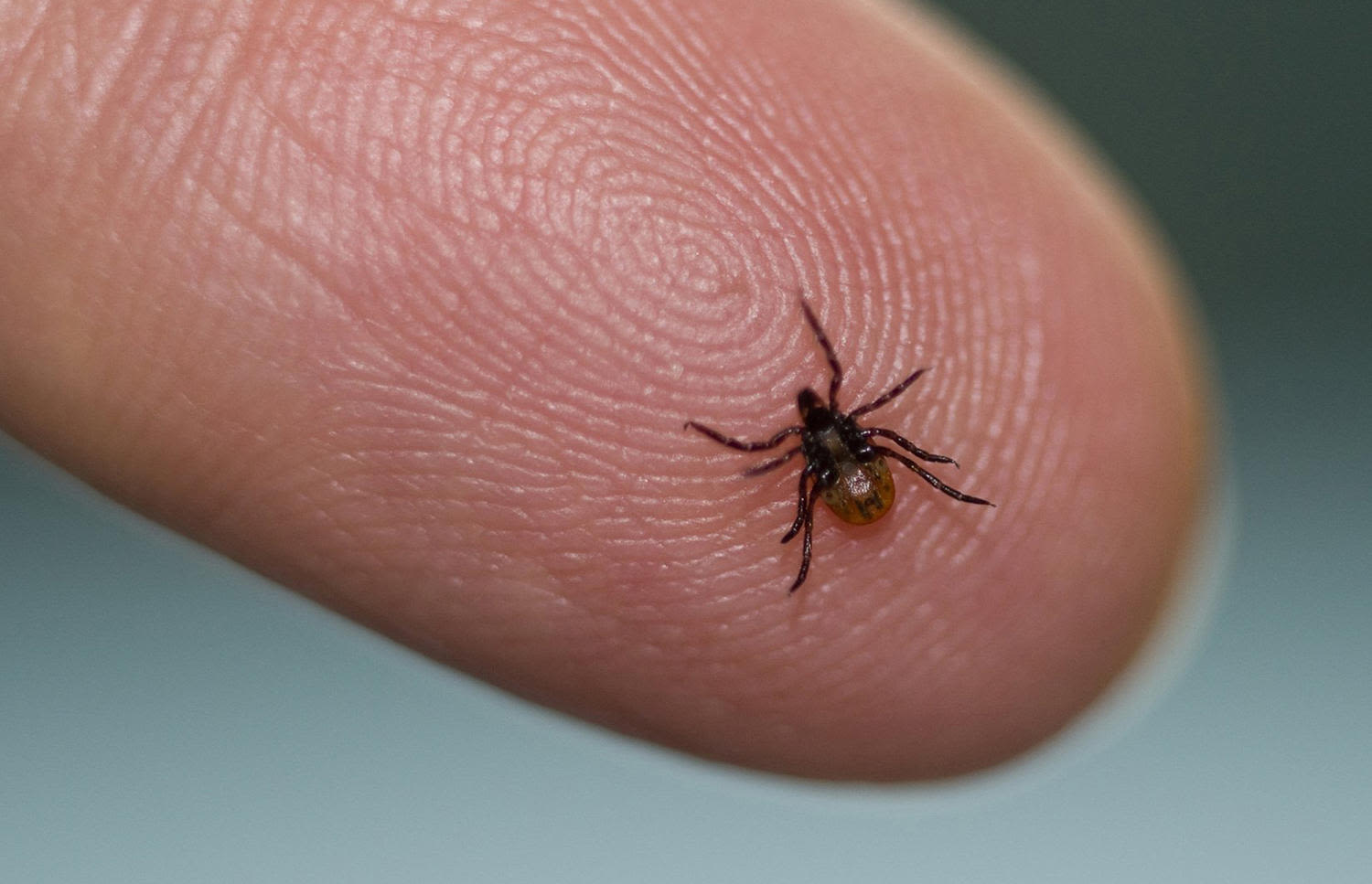Search results
Aug 16, 2022 · Lyme disease is caused by a bacteria, Borrelia burgdorferi, which you can get if an infected deer tick (also called black-legged tick) bites you. Ordinary "wood ticks" and "dog ticks" don’t carry the infection.
Lyme disease is caused by Borrelia (you might also see it as Borreliella), a spiral or corkscrew-shaped bacteria known as a spirochete. There are several species of Borrelia . Borrelia burgdorferi is the most common one in the United States; Borrelia mayonii exists in the U.S. as well.
News about Lyme disease, Tick Awareness Week, Flightpath Biosciences
News about ticks, Michigan, Lyme disease
What causes Lyme Disease? Lyme disease is primarily transmitted by the bite of an infected black-legged tick, otherwise known as a deer tick. The infective agent of Lyme disease, the spirochete bacteria, Borrelia burgdorferi, is an obligate parasite of animals
Courtesy of Dr. Eva Sapi. Lyme disease is caused by a spirochete—a corkscrew-shaped bacterium called Borrelia burgdorferi. Lyme is called “The Great Imitator,” because its symptoms mimic many other diseases. It can affect any organ of the body, including the brain and nervous system, muscles and joints, and the heart.
Jan 27, 2020 · At first, Lyme disease usually causes symptoms such as a rash, fever, headache, and fatigue. But if it is not treated early, the infection can spread to your joints, heart, and nervous system. Prompt treatment can help you recover quickly. What causes Lyme disease? Lyme disease is caused by bacteria.
Lyme disease is most frequently reported from the upper midwestern, northeastern, and mid-Atlantic states where it is spread by Ixodes scapularis ticks. Some cases are also reported from northern California, Oregon, and Washington, where it is spread by Ixodes pacificus ticks.
Feb 10, 2023 · If you live where Lyme disease is common, the rash might be enough for a diagnosis. A diagnosis usually depends on the following: A review of all signs and symptoms. A history of known or possible exposure to ticks. Blood tests to find disease-fighting antibodies to the bacteria.



